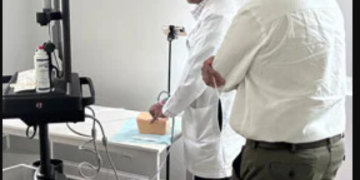Navigating the journey of autism can be a challenging experience for families. From the initial concerns about a child’s development to seeking a formal assessment and evaluation, each step is crucial in understanding and supporting the unique needs of individuals on the autism spectrum. In Washington state, and particularly in Seattle, there are dedicated resources and professionals committed to providing comprehensive autism assessments, evaluations, and screenings, as well as educational advocacy to support families through this process.
Autism Assessments in Seattle
Seattle is home to several reputable centers offering specialized autism assessments. These assessments are designed to evaluate a child’s developmental progress and identify any signs of autism spectrum disorder (ASD). The University of Washington Autism Center, for example, provides thorough evaluations for infants, children, and adolescents suspected of having ASD. Their approach includes a caregiver interview, review of medical and developmental history, and direct, in-person testing.
Autism Evaluation in Seattle
Following an initial assessment, a detailed autism evaluation is often the next step. autism assessments Seattle Center offers diagnostic evaluations for children aged 15 months to 21 years to determine if they have ASD or another condition affecting communication and learning. These evaluations are critical as they form the basis of a personalized treatment plan tailored to the child’s unique medical, behavioral, and educational needs.
Autism Screening in Washington State
Early autism screening is essential for timely intervention. In Washington state, the Department of Health emphasizes the importance of early screening and diagnosis to ensure the best outcomes for children with autism. They provide resources and guidance on the recommended ages and intervals for developmental screening, helping families to identify and address concerns as early as possible.
Educational Advocate in Washington State
For families navigating the educational system with a child on the autism spectrum, an educational advocate can be an invaluable ally. In Washington state, educational advocates assist families in understanding their rights and the services available to their children. They work collaboratively with schools to develop effective Individualized Education Plans (IEPs) or 504 plans, ensuring that each child receives the appropriate resources and support to thrive academically.
In conclusion, the path to supporting individuals with autism involves a collaborative effort between families, healthcare providers, and educational systems. With the right assessments, evaluations, screenings, and advocacy, children and adolescents with ASD in Seattle and across Washington state can access the services they need to reach their full potential. The commitment to providing these services reflects a broader dedication to inclusivity and support for all individuals with special needs.




























































